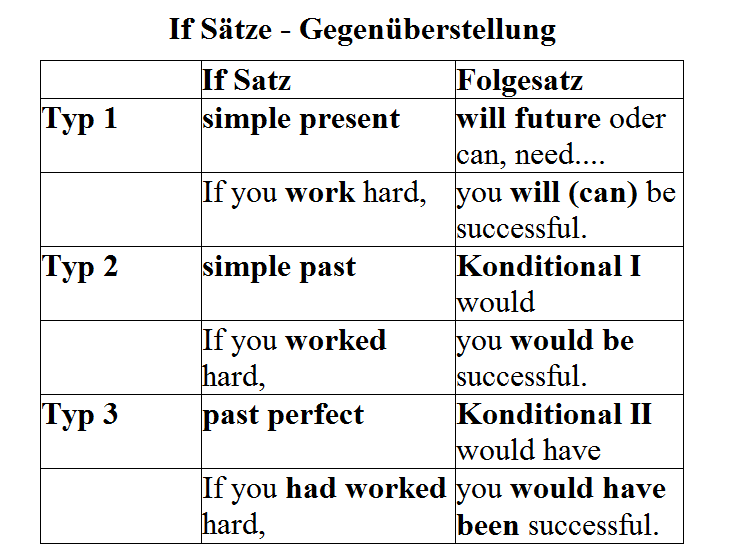if clauses - practical application
| if-Satz | consecutive clause | probability | |
|---|---|---|---|
| if-clause type I | simple present | will-future, can, need etc. | the condition of the if-clause is fulfilled in the consecutive clause |
| example: | If you work hard, | you will be successful. | |
| if-clause type II | the simple past | conditional I would+Grundform | implementation possible but improbable |
| example: | If I had money, | I would buy a BMW. | |
| if-clause type III | past perfect | conditional II would have+ infinitive perfect | condition can not be completed any more |
| example: | If I had had money, | I would have bought a BMW. |
if-clause type I
In the if-clause type I the conditon is fullfilled in the consecutive clausecompletely: zwingend eine Konsequenz im consecutive clause.
Wenn A, dann B. Im if-Satz steht simple present, im consecutive clause will-future oder ein modales Hilfsverb (can, need etc.) + Infinitiv.
example: If you eat less, you will lose weight.
if-clause type II
The condition of the if-clause is unlikely, but still possible.
The if-clause requires simple past the consecutive clause conditional I (would + infinitive).
example: If you worked hard, you would be more succesful.
if-clause type III
The condition of the if-clause can not be fulfilled any more. The if-clause requires past perfect , the consecutive clause conditional II (would have – present perfect infitive).
example: If you had worked harder, you would have been more successful.
zero conditional
The so-called zero conditional poses a condition in its if-clause in the simple present tense. The consecutive clause requires the imperative.
example: If you don’t like it, go!

